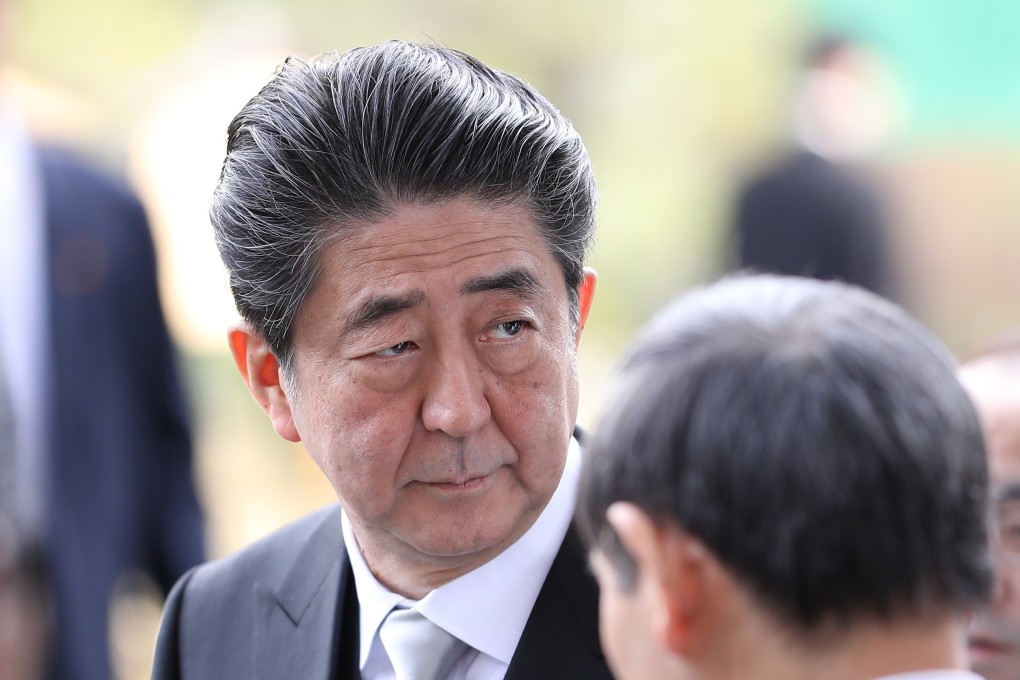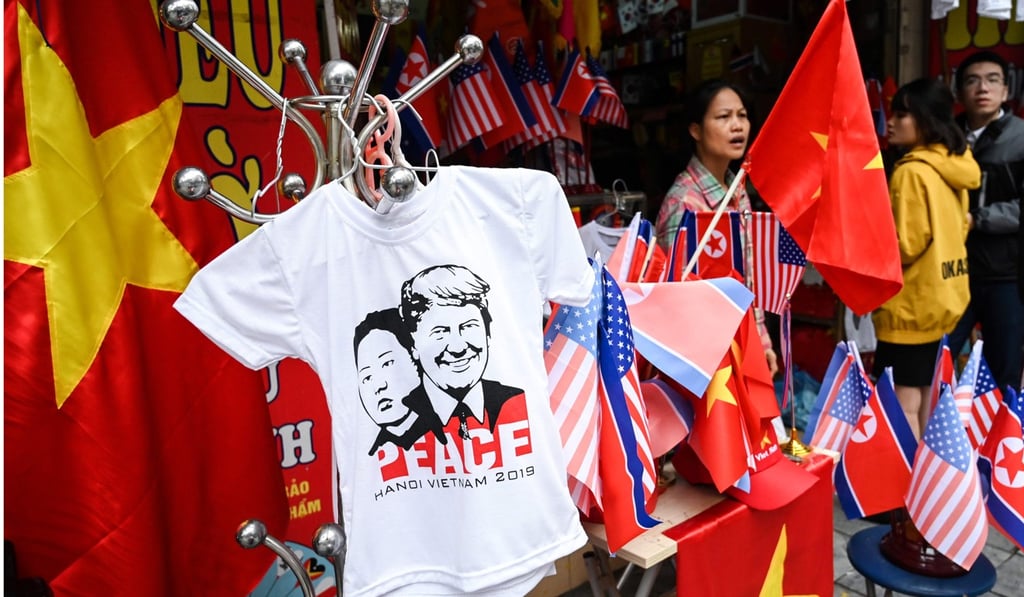Advertisement
Trump-Kim summit 2019: Japan won’t lift North Korea sanctions even if US does so, report says
- Tokyo maintains its own set of sanctions on Pyongyang to punish it for abducting Japanese nationals and its nuclear programme
- An official at Japan’s foreign ministry would not confirm the Mainichi report but said Tokyo would “encourage the peace process between the US and North Korea”
Reading Time:3 minutes
Why you can trust SCMP

Japan has informed the US government that it has no plans to lift the sanctions it unilaterally imposes on North Korea, according to a media report in Tokyo, even if the summit in Hanoi between President Donald Trump and Kim Jong-un is perceived to have a positive outcome.
The Mainichi newspaper reported that Japan has no intention of sending economic assistance or humanitarian aid to the North even if Trump agrees to relax some of the sanctions that the US has imposed on Pyongyang in response to its nuclear and ballistic missile programmes.

Advertisement
When contacted by the South China Morning Post, an official at Japan’s foreign ministry would not confirm the report, but said Tokyo will “encourage the peace process between the US and North Korea”.
“The last time that Prime Minister Shinzo Abe spoke with President Trump, the discussions were on how to move the process forward and to resolve the issues of the North’s nuclear and missile programmes and the issue of the abduction of Japanese citizens,” the official said.
Advertisement
“We are working closely with the US, and Japan hopes for a successful outcome from the summit in Hanoi and for the peace and prosperity of the East Asia region.”
Advertisement
Select Voice
Choose your listening speed
Get through articles 2x faster
1.25x
250 WPM
Slow
Average
Fast
1.25x